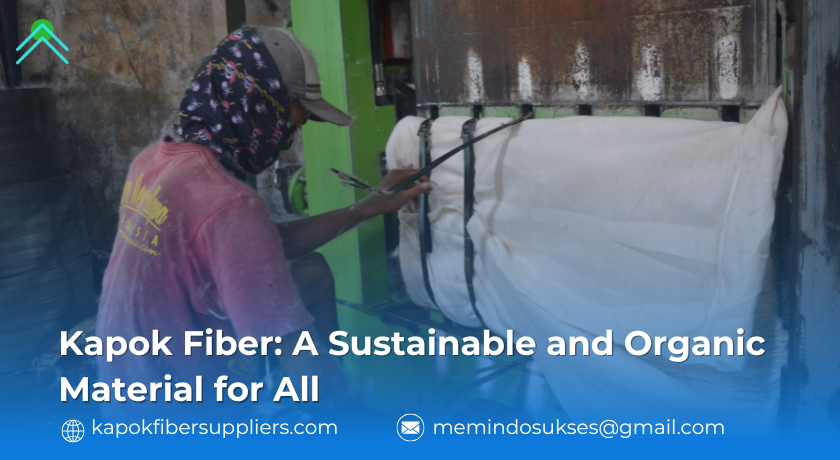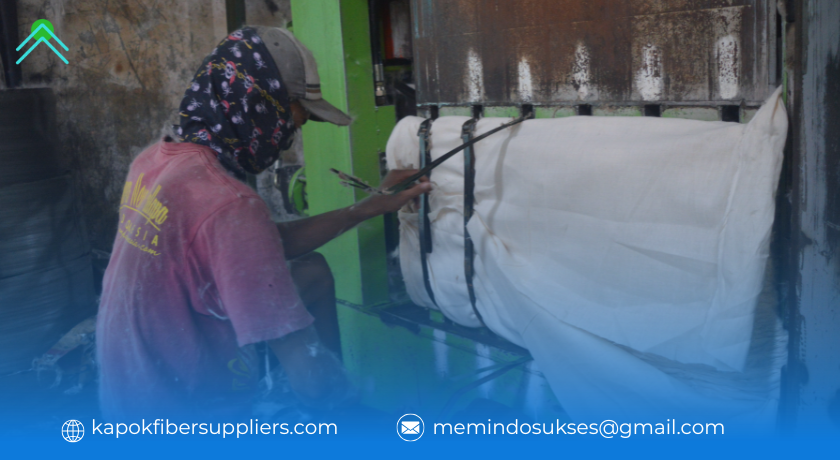
As the world moves toward more sustainable practices, kapok fiber is gaining traction as a top choice for eco-friendly products. Whether you are a manufacturer, retailer, or conscious consumer, kapok fiber offers a natural, biodegradable, and organic alternative to synthetic materials. Learn why kapok is the future of sustainable manufacturing.
What is Kapok Fiber?
Kapok fiber is a natural material extracted from the seed pods of the kapok tree, found in tropical regions such as Southeast Asia. This lightweight, soft fiber has been used for centuries for various purposes, but its environmental benefits make it a modern, sustainable choice. Kapok organic fiber is gaining momentum due to its versatility and eco-conscious appeal.
Features of Kapok Fiber:
- Natural & Organic: Free from harmful chemicals, this organic material supports a healthier environment.
- Biodegradable: Unlike synthetic materials, kapok fiber decomposes naturally, reducing environmental waste.
- Hypoallergenic: Ideal for sensitive skin, kapok fiber is resistant to allergens like dust mites and bacteria.
Why Kapok Fiber is Ideal for Your Sustainable Products
Choosing kapok fiber for your business offers numerous advantages. Whether you are looking to create bedding, clothing, or insulation, kapok’s unique properties make it an excellent choice for sustainable products.
1. Sustainable and Eco-Friendly
Kapok fiber is a 100% biodegradable material that comes from a renewable resource. As an eco-friendly alternative to synthetic materials, it helps reduce pollution and waste. Kapok trees require no pesticides or fertilizers, which further enhances its sustainability credentials.
2. Lightweight and Comfortable
Despite being incredibly light, kapok fiber retains great durability and resilience. This makes it a perfect material for products that need cushioning or soft filling, such as pillows, mattresses, and stuffed toys. Its natural softness also ensures comfort without compromising on support.
3. Hypoallergenic and Safe for All
Kapok fiber’s natural properties make it a hypoallergenic alternative to synthetic materials. It resists dust mites, mold, and bacteria, making it ideal for consumers with allergies or respiratory sensitivities. It’s a safe, healthy option for bedding, baby products, and other personal items.
How to Source Kapok Fiber Wholesale
If you’re looking to incorporate kapok fiber into your products, sourcing it wholesale from reputable suppliers is essential. Here’s how to find the best kapok fiber suppliers:
1. Focus on Organic Certification
To ensure the kapok fiber is truly organic, always look for suppliers who can provide certification. Organic certification guarantees that the fiber is free from harmful chemicals and pesticides.
2. Choose Ethical and Sustainable Suppliers
Select kapok fiber suppliers who prioritize sustainability and ethical sourcing. Ensure that the suppliers you choose are transparent about their farming practices, and support fair trade principles. This ensures that the kapok is both environmentally and socially responsible.
3. Quality Assurance
Before committing to large orders, request samples to assess the quality of the kapok fiber. High-quality fiber should be clean, soft, and free from contaminants. Consistent quality is essential to creating premium products.
Kapok Fiber: A Future-Proof Material for Eco-Conscious Brands
As businesses seek to meet the growing demand for sustainable products, kapok fiber stands out as an innovative solution. With the increasing consumer shift toward eco-friendly choices, incorporating kapok fiber into your products can help your brand remain competitive in a green economy. Kapok’s versatile uses, combined with its sustainability, make it a future-proof material for manufacturers looking to thrive in a conscious market.
A Growing Trend in Sustainable Manufacturing
The growing demand for sustainable products presents an opportunity for manufacturers to embrace kapok fiber. From textiles to insulation materials, kapok is being used across various industries. Brands incorporating kapok organic fiber in their offerings are positioning themselves as leaders in the sustainable market, attracting eco-conscious consumers.
Conclusion
Kapok fiber is a sustainable, organic, and eco-friendly material that’s changing the way we think about manufacturing. Its natural properties make it an excellent alternative to synthetic fibers, offering a wide range of benefits from environmental sustainability to comfort and safety. For manufacturers and businesses seeking to create environmentally-conscious products, kapok fiber is the perfect choice.
By choosing kapok, you’re not just adopting a new material—you’re joining the movement towards a greener, more sustainable future.

